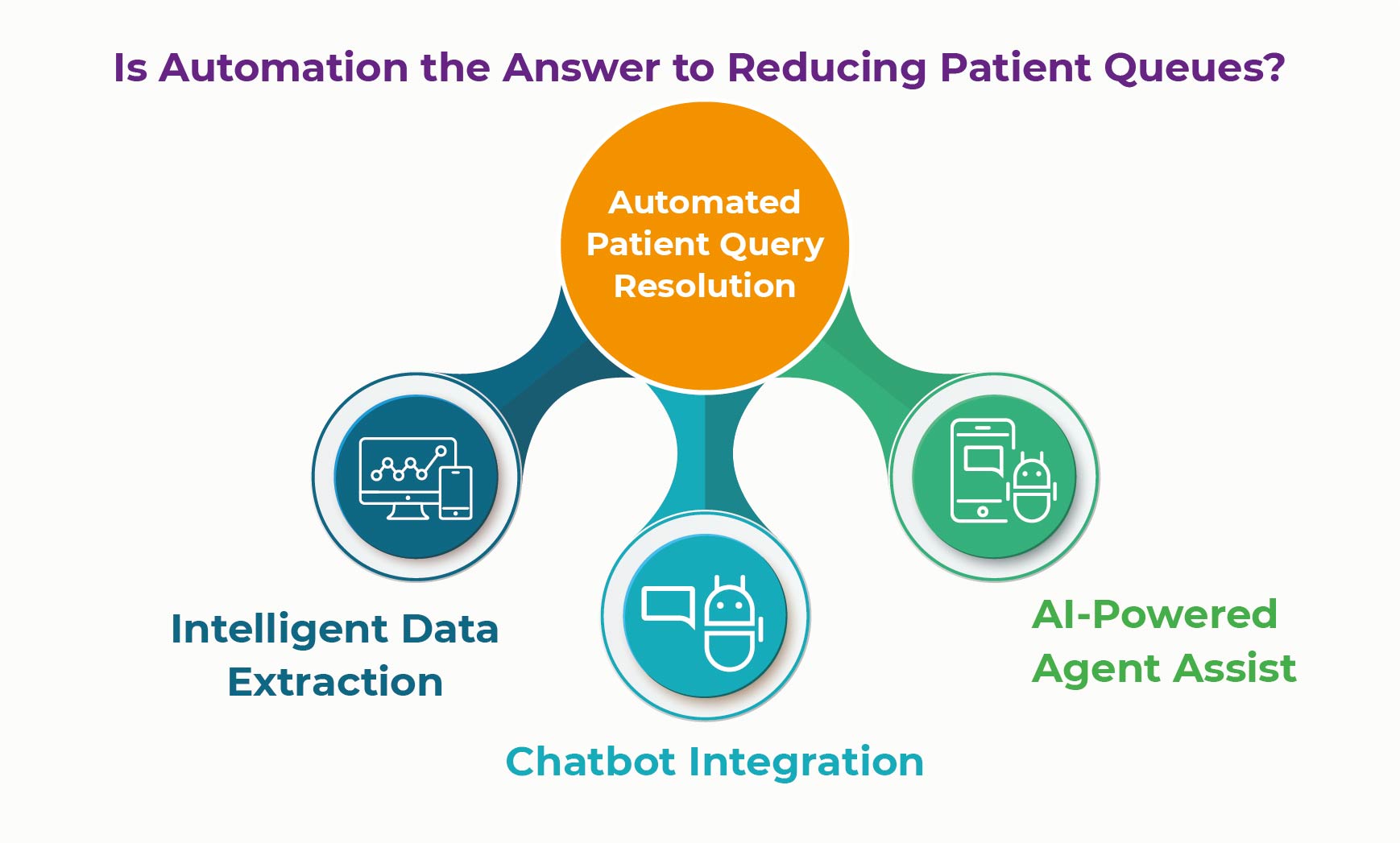Nobody likes to wait in line at least when it’s a matter of health. From clinical documentation and claims reimbursement to medical record documentation, healthcare providers often receive queries in high volume. These queries add up to a long queue of service tickets related to patient queries. And with a lot of administration work and offering value patient care, it becomes challenging for healthcare professionals to serve patients on time.
Additionally, healthcare staff also have to pull reports to see how many queries were written and need to be sent by fax to clinicians and physicians’ email as per the preference. And when physicians receive queries in multiple formats and from multiple systems, it becomes more challenging to segregate the information due to-
- High-Volume Paper Work
- Unstructured Data Format
- Sharing Information with Patients
With these challenges clutching the healthcare staff and physicians, it’s tough to focus on the decision-making process that might hinder the patient care provided to patients. So how healthcare providers can get rid of these long patient queues and enable value-led patient care? Let’s go through this blog to find out more about how automated patient query resolution can transform the way healthcare professionals offer their services.
Is Automation the Answer to Reducing Patient Queues?
As a healthcare provider, if you are struggling with long patient query queues, then yes automation is the answer to reduce the friction in the patient query process. Using automation technologies like RPA and AI can help healthcare staff be away from the chaos of repetitive tasks and make it easy for healthcare providers to offer valuable patient care at a cost-effective rate. According to the report, RPA in the healthcare market is expected to hit around USD 6.2 billion by 2030. These figures are definitely going to soar high in the near future as far as the benefits are concerned with RPA in the healthcare market.
Along with enabling resolving patients’ queries at ease, RPA in healthcare offered significant customer experience as well. And according to statistics around 61% of customers cut ties with a brand if they fail to match their requirements. In this scenario, RPA can be the game changer in reducing the long patient queue. Some of the ways RPA can be utilized in automated patient query resolution are-
-
Intelligent Data Extraction
As soon as a request is raised by a patient regarding appointments, claims, and any other information, healthcare staff has to add data to the system for further processing. With high-volume queries verifying patient IDs and adding data into the system for further processing is a time-consuming and iterative process. But by using RPA in conjunction with Intelligent Document Processing, healthcare providers can automate data entry tasks such as entering patient information into electronic medical records can reduce the time and errors associated with manual data entry.
-
Chatbot Integration
With a high volume of patient queries and requests, it is tough to be available 24/7. From routine patient queries to the right service desk staff to offering on-time resolution chatbots can be integrated. Healthcare providers can use a predefined set of rules to create autonomous conversations where patients can easily ask their queries and bots can easily redirect them to the right sources for instant resolution. Additionally, an RPA chatbot can update query status and follow up with patients for a greater patient experience. And the best part about these chatbots is that by leveraging RPA chatbot healthcare staff give the self-service experience to patients. This further reduces manual intervention and operational costs as well.
-
AI-Powered Agent Assist
With the high volume of service tickets and patient queries, healthcare agents might find it hard to cope with faster resolution. In this way, leveraging healthcare automation can create a knowledge base for repetitive queries asked by patients. This way healthcare staff doesn’t have to look for the right information in multiple systems that is available in multiple formats. Instead of AI agents making the information available for healthcare staff as per the requirements. This makes the process execution faster and also enhances employee productivity. That’s how RPA benefits the healthcare provider in mimicking repetitive processes.
With the number of patient requests rising every single day and offering value-led healthcare services requires a viable solution that along with accelerating the healthcare experience also enables ease of doing work. And automation is one of the capabilities that can make this possible for healthcare providers. It’s time for healthcare providers to fasten the patient care experience by leveraging these technologies and adding a touch of intelligence to the healthcare process.
